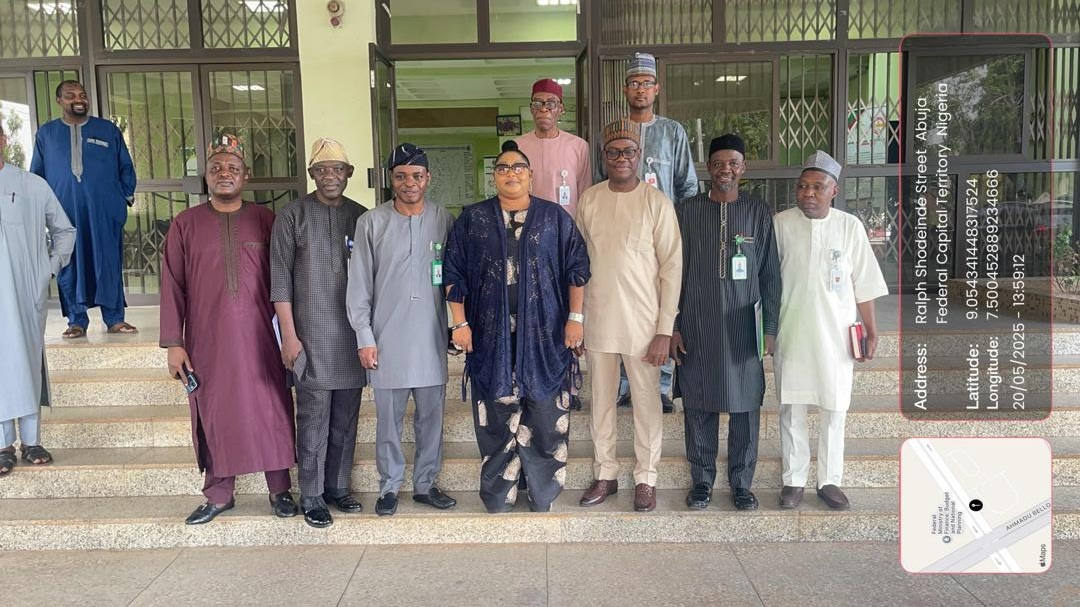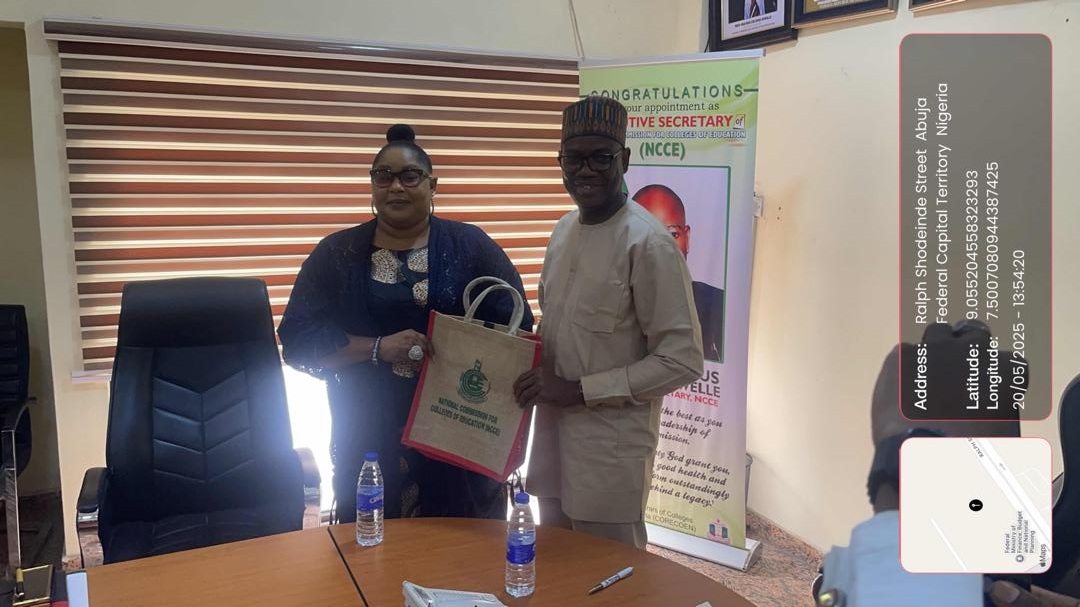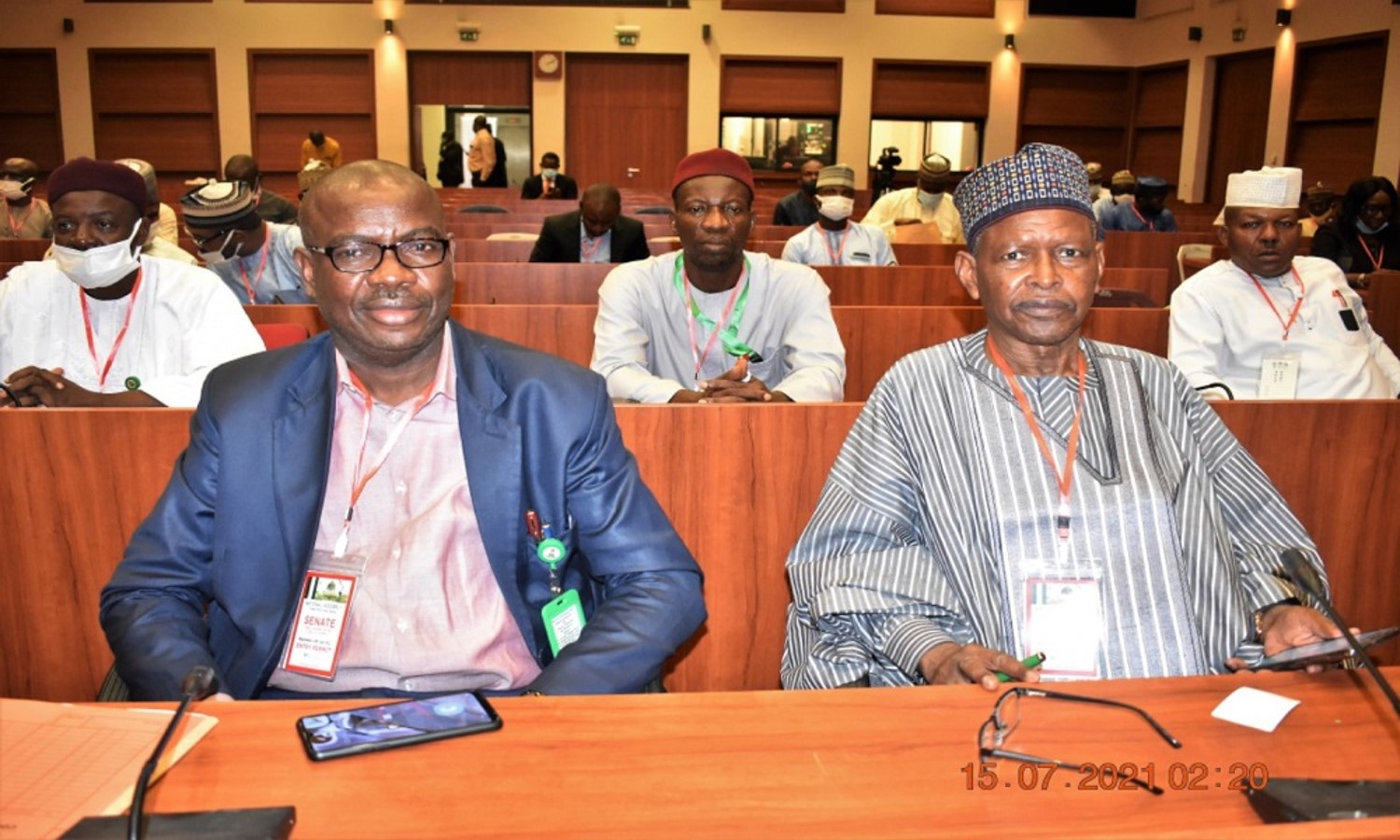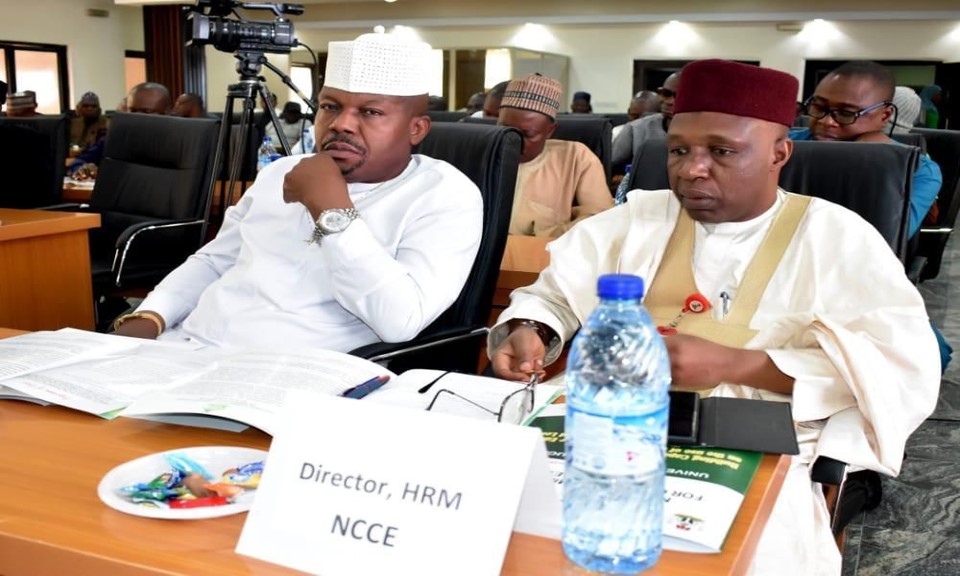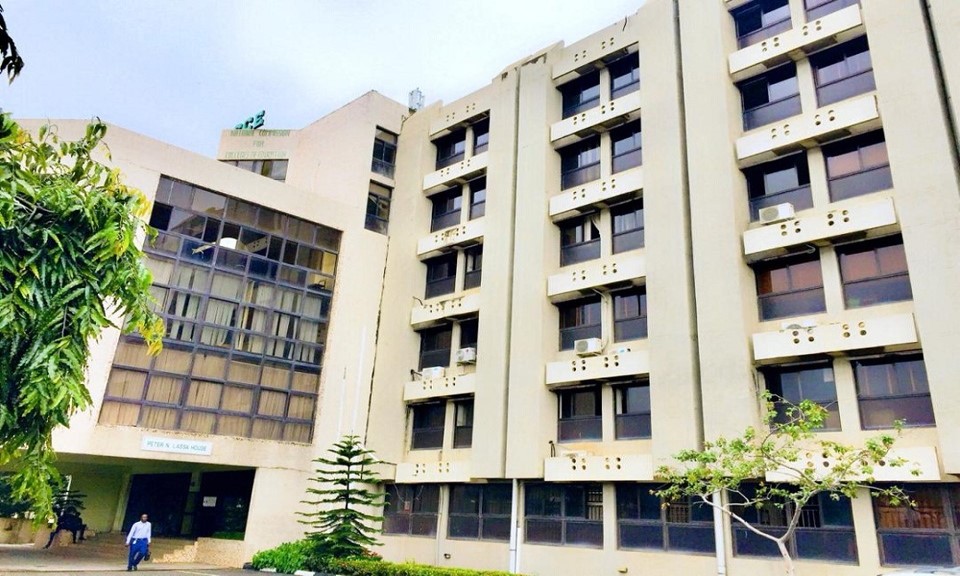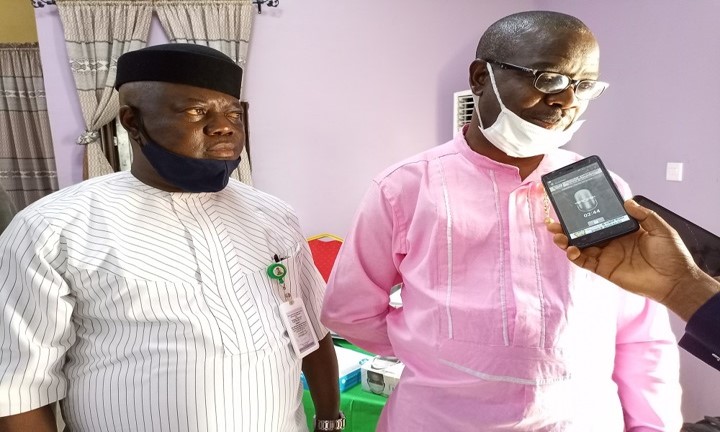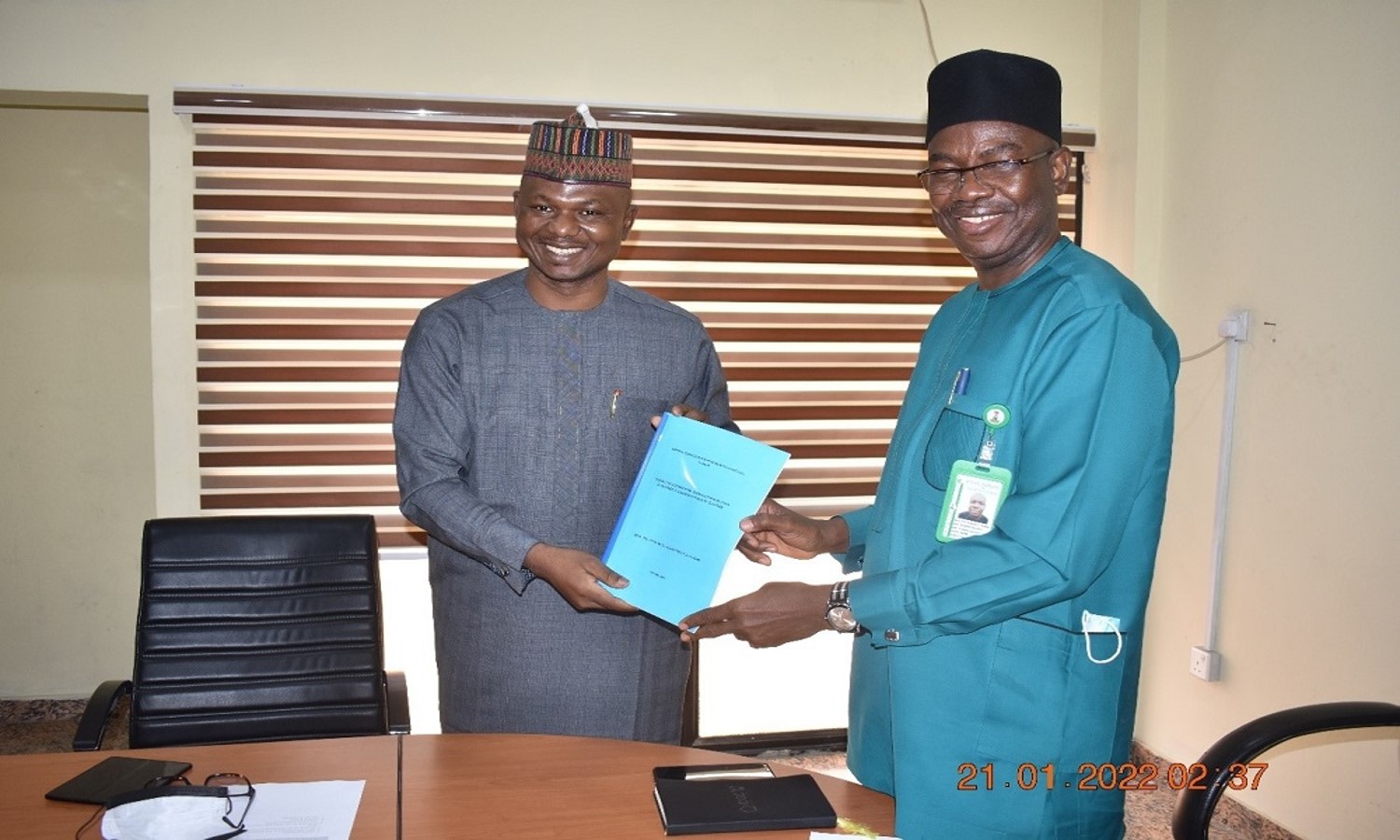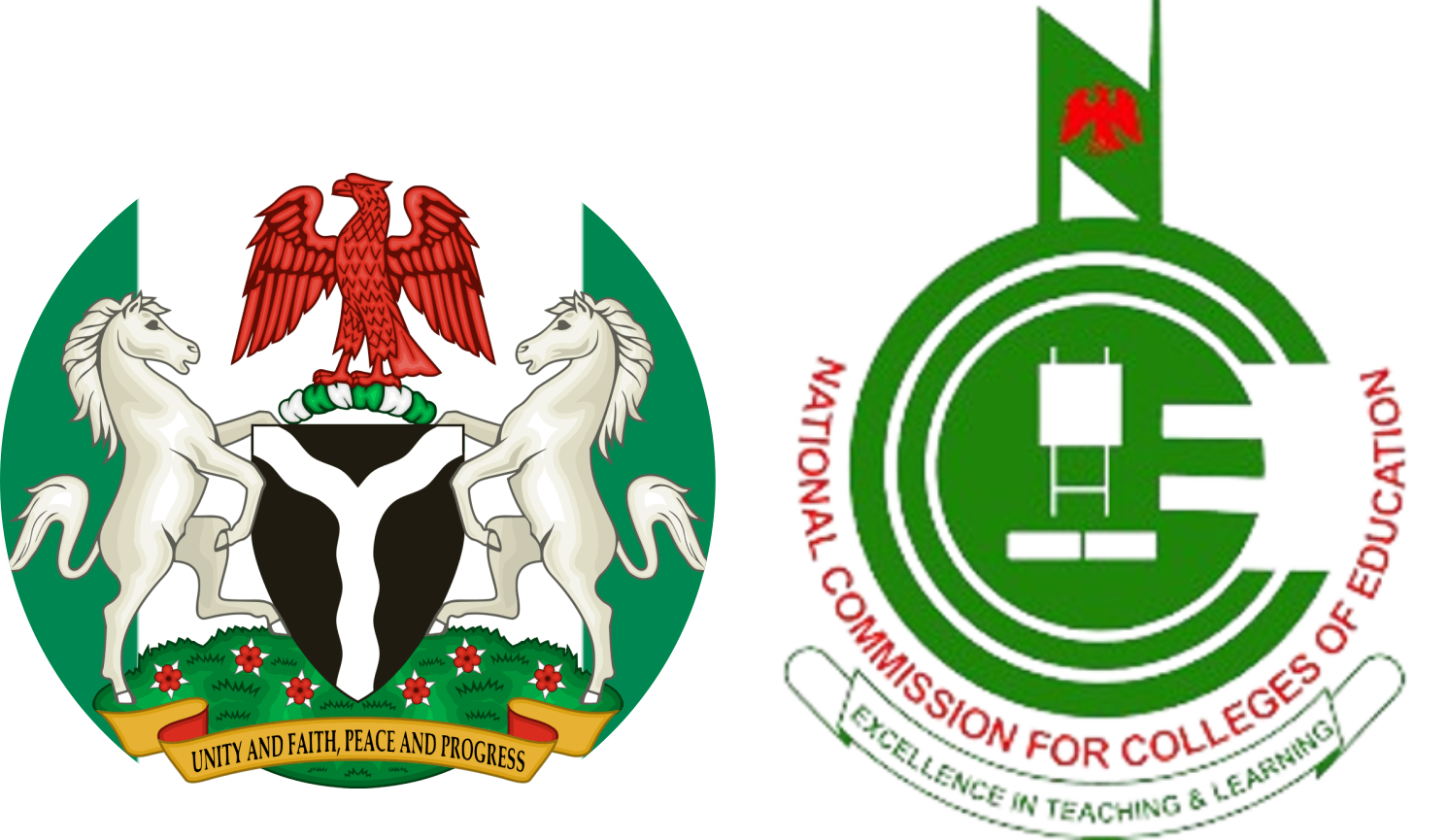The Nigerian Teacher
A Journal of Teacher Education published by the National Commission for Colleges of Education (NCCE), Abuja.
Email: ncce.tnttjournal@gmail.com
Editorial Board
Editorial Leadership
- Editor-in-Chief:Prof. Paulinus C. Okwelle, MNAE
- Editor:Garba Muhammad Koko
- Deputy Editor:Omale Allen Abduljabbar
- Computer Editor:Adamu Umar Tijjani
- Web Publisher:Princewill Iheanyichukwu Ogu
Consulting Editors
- Name and Institution: Prof. Reko E. Okoye , Nnamdi Azikiwe University Awka, Anambra State
- Name and Institution: Prof. Salihu Y. Ingawa, Faculty of Education University of Abuja
- Name and Institution: Dr. Alex A. Maiyanga mni, Faculty of Education, Nasarawa State University
- Name and Institution: Dr. Umar A. Ginga, Faculty of Education Ahmadu Bello University, Zaria
- Name and Institution: Dr. Abdulkareem Yunusa, Faculty of Education Nasarawa State University, Keffi
Foreword
Prof. Paulinus Chijioke Okwelle, MNAE
Executive Secretary
Available Articles
ACCOUNTING EDUCATION PROGRAMME AND YOUTH EMPOWERMENT AMONG UNIVERSITY BUSINESS EDUCATION GRADUATE IN NIGERIA
NCCETNTT20AR11Abstract
The study was aimed at assessing the influence of accounting education programs in Nigerian University on youth empowerment in Edo State. The research was also guided by three specific objectives, three research question and three hypothesis. The research adopted a correlational research design while the population of the study was made up of a total of 877 respondents taken from three public universities in Edo state including Ambrose Ali University, Edo State University and University of Benin. A total of 269 respondents was selected as sample using the stratified random sampling technique. To test the hypothesis state, a simple regression and ANOVA associated with regression at 0.05 Alpha level of significance. Findings from the study reveals there is no significant relationship between accounting education program and youth empowerment. From the study it could be ascertained that other factors order than accounting education programs influence youth empowerment. The study concludes that despite the relevance of accounting education in the life of youth seeking empowerment, it may not be an effective means for addressing youth unemployment and wealth creation. The study concluded among others that there should be promotion of a more diversified education system that includes vocational training, entrepreneurship and other business related field in addition what accounting curriculum tends to offer and promote.
ASSESSMENT OF THE EFFECTIVENESS OF GUIDANCE AND COUNSELLING SERVICES AMONG SENIOR SECONDARY SCHOOLS IN GOMBE METROPOLIS, GOMBE STATE
NCCETNTT20AR10Abstract
This paper assessed the effectiveness of Guidance and Counselling Services in Secondary Schools in Gombe Metropolis, Gombe State. The objective of the study was to assess the adequacy, quality and services of guidance and counselling in Senior Secondary Schools, Survey research method was employed. The target population of the study was twenty-five (25) Senior Secondary Schools within Gombe metropolis. Simple random sampling (SRS) method was used to select 165 teachers out of four hundred and forty (442) teachers across the selected Senior Secondary Schools randomly. Questionnaires was the main instrument for data collection. Mean score was used for data analysis. Findings from the study revealed that secondary schools in Gombe Metropolis, lacked adequate and qualified guidance counselors in their Schools and inadequate and quality guidance counselling facilities. It was also discovered that guidance counselling services were not adequate in the secondary schools within the Gombe Metropolis. From the findings of the study some recommendations were proffered to improve the Guidance and Counselling services in the schools such as adequate number of qualified guidance counselors should be employed by government and guidance and counselling facilities should be procured in all the secondary schools in Gombe Metropolis. The study also recommends that Inspectors from the Inspectorate division of the state ministry of education should regularly pay visit to schools to closely monitor the activities of the counselors, this will encourage them to improve upon their responsibilities.
ASSESSMENT OF THE IMPLEMENTATION OF ENTREPRENEURSHIP EDUCATION CURRICULUM IN SECONDARY SCHOOLS IN SOKOTO METROPOLIS, SOKOTO STATE, NIGERIA
NCCETNTT20AR06Abstract
This study assessed the implementation of Entrepreneurship Education Curriculum in Secondary Schools in Sokoto metropolis. Survey research design was adopted for the study. The population of the study was all the Secondary school teachers from the 23 secondary schools offering entrepreneurship subjects in Sokoto metropolis. Twenty three 23 teachers were randomly selected, one 1 teacher from each of the twenty three secondary schools. Three research objectives and research questions guided the study, the instrument used for data collection was a checklist constructed by the researcher titled “Entrepreneurship Curriculum Implementation Checklist” (ECIC). The instrument was validated by experts in the Department of Curriculum Studies and Educational Technology, Usmanu Danfodiyo University Sokoto. The reliability of the instrument was obtained using Pearson Product Moment Correlation with reliability coefficient of 0.70. Data collected were analyzed using frequency count and simple percentage. Findings revealed that the level of implementation of entrepreneurship curriculum in senior secondary schools in Sokoto metropolis is low, the level of availability of specialist teachers to teach the subjects is very low, and the infrastructure available for teaching the subjects are also low. It was recommended among others that Government should recruit more entrepreneurship specialist teachers, and also workshop/seminars on entrepreneurship education be organized for secondary school teachers.
CHALLENGES FACING THE TEACHING AND LEARNIG OF INTEGRATED SCIENCE FOR NATIONAL DEVELOPMENT: A CASE STUDY OF GOVERNMENT DAY SECONDARY SCHOOLS IN KARU LGA NASARAWA STATE
NCCETNTT20AR05Abstract
The position of Basic Science as the bedrock for all science subjects in the senior secondary school has led to its inclusion in the school curriculum. The researcher reviewed 14 empirical research articles on integrated science published mostly from 1995 to 2015. This paper has discussed the challenges facing its teaching in (GDSS Karu, Nasarawa state. The challenges of teaching the subject are lack of motivation of teachers, lack of interest among students, medium of instruction, and lack of infrastructure among others. Recommendations which if properly effected would enhance effective teaching of basic science are; Teachers should, as prescribed in the curriculum, take students out on field trips and excursions. To facilitate this exercise, teachers should be provided with an impress, to cover the cost of transport and other expenses. Federal and state ministries of education should ensure that every integrated science teacher attends at least one workshop or seminar every year. Moreover, in-service training be approved for many unqualified integrated science teachers in secondary schools.
Challenges of Achieving the Sustainable Development Goals in Nigeria
NCCETNTT20AR09Abstract
The Sustainable Development Goals (SDGs) were formally born at the United Nations Conference on Sustainable Development in Rio de Janeiro in 2012. The objective was to produce a set of universal goals that meet the urgent environmental, political and economic challenges bedeviling the world. These include poverty, increasing inequality, environmental and human health degradation. The thrust of this paper is to examine the challenges to sustainable development in Nigeria. The objectives of the study are to: explain the concept of sustainable development, trace the evolution of sustainable development in Nigeria, explain the challenges to sustainable development in Nigeria and identify and explain strategies for the realization of sustainable development in Nigeria. The study established that the level of sustainable development in Nigeria is seriously affected by plethora of challenges, which can be minimized if the strategies identified and explained are adequately utilized. The study relied on secondary sources of data which included: text books, and reputable journal publications from recognized data bases.
CHALLENGES OF INCLUSIVE LIBRARY SERVICES FOR EFFECTIVE LEARNING AMONG PEOPLE LIVING WITH DISABILITIES IN ACADEMIC LIBRARIES IN ZAMFARA STATE NIGERIA
NCCETNTT20AR14Abstract
This paper attempted to examine some challenges of inclusive library services for effective service delivery in academic libraries in Zamfara state, Nigeria. Descriptive survey research design was used for the study, the population of the study was 13 academic librarians in the colleges of education under study. Self-structured questionnaire was used as an instrument for data collection from respondents, the instruments were validated by three experts who found the instrument valid for the study after making some corrections. The major findings of this study indictaed that the libraries under study lack facilities and materials to render inclusive library services to people living with disabilities and the academic librarians under study have no relevant training on how to handle or provide the services. Recommendations includes: Provision access point/way for the people living with disabilities, provision of relevant leaning materials to support their education, training and retraining of academic librarians on how to provide inclusive services. The paper’s originality lies in examine challenges facing inclusive library services for effective learning among people living with disabilities in academic libraries in Zamfara state Nigeria
INFLUENCE OF DIGITAL SWITCH-OVER ON INSTRUCTIONAL DELIVERY OF BUSINESS EDUCATION PROGRAMME IN COLLEGES OF EDUCATION IN SOUTH-SOUTH NIGERIA
NCCETNTT20AR03Abstract
The study examined how digital switch-over can enhance instructional delivery of Business Education programme in Colleges of Education in South-South Nigeria. The paper employed the survey of literature to achieve the objectives. The population for the study was two hundred and fifty-one business educators in Colleges of Education in South-South, Nigeria. The populations of the study was 251 respondents taken form 6 states teaching business. The sample size of the population was 154 derived using the Taro Yamane formula. The correlation index of 0.753 was used for the reliability of the instrument. To ensure that the objectives of the study were achieved, a 15-item questionnaire with a 5-point Likert scale was used. The simple random sampling technique was applied to get the number of respondents. This was best to explain the respondents’ opinions. Mean and Standard Deviation was used to test the univariate variables whereas t-test was used to test the bivariate variables at 0.05 level. The mean figures were 3.0 and above which showed a high extent response from the respondents to the questions posed. While the hypotheses were tested using t-test statistical tool at 0.05 significant level. Findings from the study showed a significant relationship between digital switch-over and instructional delivery of business education programs. The study therefore recommended that business educators should be trained on the use of these digital technologies for instructional delivery in Colleges of Education in South-South, Nigeria
MAGICAL REALISM AND ENVIRONMENTAL ADVOCACY IN BEN OKRI’S ‘‘EVERY LEAF A HALLELUJAH’’
NCCETNTT20AR04Abstract
In the rapidly deteriorating environment, magical realism as a fictional genre offers a valuable means of representing environmental consciousness. While magical realism may seem to embody fantasy, it actually contributes significantly in understanding our reality. Environmental advocacy is necessary for both the sustenance of the environment and the human race. Humans are responsible for the environmental depletion and ecological crisis which is rapidly unfolding before us, urgently demanding a shift in perception towards our environment. This study examines the role of magical realism in advocating environmental change in Ben Okri’s novel, Every Leaf a Hallelujah. Using eco-criticism as the theoretical framework, the study explores how magical realism, as a literary technique, is deployed in the novel to create a mindset shift in how humans view their environment. Through a textual analysis, it is revealed that this technique, influences the plot, characterization, settings (in time and space), language, and other aspects of the novel to highlight the relevance of the environment to humans. Particularly, there are instances where nonhuman objects are personified, time is disrupted, sicknesses, pestilences, harsh weather condition are used as symbols of ecological judgment, a magical flower becomes a symbol of survival, the intersection of the realms of the physical and spiritual, and other elements of magic are infused to create environmental consciousness, advocate environmental change, raise ethical issues, and influence a change in human outlook towards their environment, which is vital for their survival.
PROSPECTS AND CHALLENGES OF EFFECTIVE TEACHERS IN THE EDUCATION OF THE GIRL-CHILD
NCCETNTT20AR13Abstract
The study investigates the challenges encountered by teachers and the society in the area of girl child education. It discusses key features and methods deployed by skilled educators to support the education of girls and the important roles they play in the advancement of societal gender equality and empowerment of women. It underscores the necessity of engaging culturally right teaching methods such as involvement with local communities, and addressing economic and social hurdles to improve the educational experiences of female students. Furthermore, the study examined the critical nature of compassion and perceptiveness in educational roles and how these attributes foster a nurturing and fair learning climate. Relying on secondary sources of data as existing literature, novels and reputable journal publications from recognized data bases, the study recommended various tactics to aid in the development of such characteristics in teachers through continuous professional development, introspective exercises, and active community participation among others. The study concludes by emphasizing the place of the girl-child in nation building, and the importance of effective teachers to girl-child education and development.
SCIENCE AND NATIONAL CONSCIOUSNESS IN NIGERIA, EMERGING ISSUES, CHALLENGES AND PROSPECTS
NCCETNTT20AR08Abstract
The role of national consciousness in the socio-economic and scientific development of a nation cannot be over emphasized. National consciousness promotes national unity, sustainable development, peace, respect for diversity, security of life and property and others. This paper investigated the correlation of science and low level of national consciousness in our nation despite the pledge to serve Nigeria with all our strength and defend her unity. The rationale of the paper derives from the understanding that science and national consciousness is of immense benefit to the nation’s development and have great prospects if well developed. It is in this bid that the paper is considering the issues of science and national identity and need for value reorientation. This paper also examined pertinent issues and challenges affecting science and national consciousness. It was found that science in Nigeria has been in existence since the commencement of private education in 1842. However, its progress has not featured great incorporation in the manufacturing and industrial sector of the economy. It is therefore, recommended that science education should be given greater emphases in real life situations in the Nigerian socio economic environment.
SCIENCE, TECHNOLOGY, ENGINEERING, ART, AND MATHEMATICS EDUCATION FOR TECHNOLOGICAL BREAKTHROUGH IN NIGERIA
NCCETNTT20AR07Abstract
The paper focuses on harnessing opportunities in STEAM education for technological breakthroughs. STEAM education encompasses an interdisciplinary approach to learning, wherein real-world problems are tackled through the combined application of science, technology, engineering, art, and mathematics. Before the integration of art, STEM education, which encompasses science, technology, engineering, and mathematics, already existed. By incorporating art into the equation, STEAM education fosters creativity and provides students with valuable skills in collaboration, inquiry, problem-solving, and critical thinking. Moreover, STEAM education plays a pivotal role in generating employment opportunities by emphasizing entrepreneurship education, thereby addressing the persistently high unemployment rates prevalent in the country. The article underscores the possibility of leveraging STEAM education for technological advancement, provided certain issues are addressed effectively. Key problem areas include the availability of qualified teachers, adequate IT resources, well-designed STEAM curricula, and sufficient funding. To overcome these challenges, the article suggests practical recommendations. One such recommendation is the recruitment of trained STEAM instructors who possess proficiency in information and communication technology (ICT) for Nigerian classrooms. By implementing these measures, the potential of STEAM education can be harnessed to propel technological breakthroughs.
THE IMPORTANCE OF ARTIFICIAL INTELLIGENCE (AI) IN THE ADVANCEMENT OF TEACHER EDUCATION PROGRAMMES IN NIGERIA
NCCETNTT20AR01Abstract
The integration of Artificial Intelligence (AI) into teacher education programs in Nigeria addresses the need for contemporary teaching skills suitable for the 21st century. This paper explores how AI enhances various facets of teacher education, such as personalized learning,student assessment, and educational research. AI-powered educational platforms offer customized learning experiences, while AI-based assessment tools enable quick identification of student struggles, allowing for targeted interventions. Furthermore, AI facilitates the analysis of large datasets in educational research, providing insights that inform teaching practices. This study employs a mixed-methods approach, combining quantitative data analysis with qualitative interviews to understand the impact of AI on teacher training. Findings indicate that AI can significantly improve the efficiency and effectiveness of teacher education programs by offering personalized training, improving lesson planning, and providing real-time feedback. The conclusions underscore the potential of AI to transform teacher education in Nigeria, emphasizing the need for investment in AI technologies and teacher training to fully realize these benefits.
THE ROLE OF ADULT EDUCATION PROGRAMME IN THE EXPANSION OF LITERACY OPPORTUNITIES TO DISADVANTAGED GROUPS IN AKWA IBOM STATE: EMPIRICAL REVIEW
NCCETNTT20AR12Abstract
This study explores the pivotal role of adult education programme in expanding literacy opportunities to disadvantaged groups in Akwa Ibom State. It examined how the programme address the educational needs of the disadvantaged groups i.e. women, rural inhabitants and the minorities. The study utilizes mixed-method approach, quantitative survey and qualitative interview to investigate the effectiveness, accessibility and the impact of adult education programme in Akwa Ibom State. The findings indicate that adult education programme significantly enhances literacy rates, empowers participants with essential life skills and fosters socio-economic development of its participants. However, challenges such as funding, inadequate infrastructure and cultural barriers still persist. Ultimately, the research advocates for improved resource allocation, policy reforms and innovative strategies as measures towards ensuring that adult education serves as a transformative tool for social equity and inclusion.
TRANSFORMING THE AL’MAJIRI WAY OF LEARNING TO A FORMAL AND MODEL SCHOOL SYSTEM: GOVERNMENT EFFORT AND THE WAY FORWARD
NCCETNTT20AR02Abstract
This study examines the Integration of Qur’anic School System into Formal Education in Gombe State, Nigeria. The study was guided by three research questions and conducted using Simple Random Sampling (SRS) Technique. The method was found to be appropriate because of its flexibility in the use of sample when the population is large. The population of the study was made up of all Almajiris, their teachers and parents in 11 Local Government Areas of Gombe State. A total of 140 Almajiris schools (tsangaya), 8,440 Almajiris, 140 teachers and 1,448 parents in Gombe State were used in this study. A Simple Random Sampling (SRS) technique was used to select 32 Almajiri schools which represent 23% of the Almajiris schools, 1875 Almajiris representing 22% and 299 parents’ represents 21% of the population from the eleven (11) Local Governments were considered for the study, The data collected was analyzed using SPSS Statistical package, Frequencies and descriptive statistics (percentages) were used to answer the research questions. Findings of the study showed that the Almajiris, Parent and Teachers are all in support of the model of integrating Qur’anic education into formal education system in Gombe State. The major recommendations are that the Almajiris should be provided with opportunities to be educated by the Government and non-governmental organizations. This can be achieved by developing the acceptable models of integrating Almajiris educating system into the formal system of education. Almajiris should be encouraged by making the education completely free. That is, the FGN and Gombe State Government should provide free tuition, uniform, textbooks and free lunch to all school children. This will help the Almajiris to integrate better. Lastly, food supply to the integrated school should be adequate, regular and the school environments should be made more convenient and conducive for learning.

